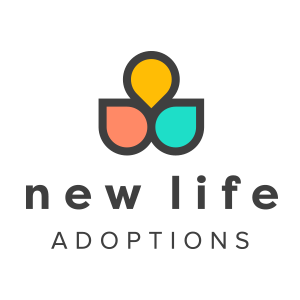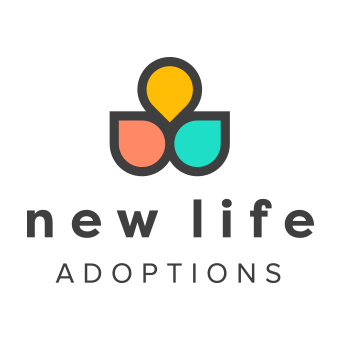Women usually plan very carefully for the labor and delivery time in the hospital but often don’t think to plan for the time after the baby arrives. I am talking about the hours and first few days after the baby is born. This period is called post-partum. After working 15 years taking care of new babies and their parent(s) on the post-partum unit at a hospital, I have seen firsthand how overwhelmed a person can be during this time.
Beyond just the physical changes, making an adoption plan can also impact your post-partum time. I encourage you to think ahead, make a plan, and anticipate what you will face during this time. Everyone’s experience is different – you can’t anticipate everything – but any time spent thinking about how you will feel, what this time may look like, and the new journey you are embarking on is time well spent.
Physically Drained
The most common statement I have heard from women after giving birth was how tired they were. Not tired, “I want to go to sleep” tired, but “weary to the bone” tired. I call vaginal birth the ultimate full body workout. You use muscles you didn’t know you had! This is on top of typically not sleeping well in the last weeks of pregnancy, and going through the labor process.
If you have a cesarean section, whether planned or unplanned, you didn’t just have a baby – you are recovering from major abdominal surgery. As with any major surgery it can take a lot out of you, and you need to recover from it. If you have a support person, they are often feeling very worn out too.
Blood Loss
Many women are unprepared for the amount of blood loss following the birth of their baby. This is expected – your body has prepared for this. Your nurses will educate you on what is normal and what to keep an eye out for. The bleeding typically lessens after the first 24 hours, but can last up to 6 weeks. You will be given large pads and mesh underwear to wear.
You may have discomfort from stitches after vaginal birth or an incision after a C-section. Medications and other treatment options, like ice packs, will be offered to you in the hospital to manage this discomfort. Sometimes it can be hard to urinate after birth, and it may sting if you have stitches. The nurses will show you some tips to help with this.
Checking the Uterus
After delivery, the nurses will check the top of the uterus to make sure it is shrinking back into place. Many women describe this as the nurse pushing on their tummy. This can be uncomfortable for some people, but is necessary to make sure everything is going well in your recovery. Often women will continue to have cramps after the birth, like mini contractions. This is your uterus shrinking down to eventually get to its original size, typically by 6 weeks post-partum. You may find you are still wearing your maternity clothes for few weeks as your body recovers and things shift back into place following the pregnancy.
Swelling
It is not unusual to have swelling, especially in your feet, after the birth even if you had none during the pregnancy. You are getting rid of the excess water weight from carrying the baby. You may find you use the bathroom quite frequently and sweat more than usual during this process. It is important to continue to hydrate yourself to prevent constipation. It is not uncommon to experience hair loss and skin changes during the postpartum period. Just as your body changed throughout pregnancy, it will change as it adjusts back to a pre-pregnant state.
Hormonal Changes
After having the baby, many hormones are fluctuating in your body and can cause what is called the baby blues, which is common in 80% of women. It is very typical to feel many ups and downs throughout the day, to cry easily, be moody, and even sad. It can cause issues with eating and sleeping, and contribute to feeling overwhelmed, even lonely. The baby blues usually last up to 2 weeks. If you continue to feel sad, moody, or overly emotional past 2 weeks, check in with your provider.
Women can experience post-partum depression (PPD), which is more severe than the baby blues, up to a year after giving birth. During this period of time it is important to have others around you that are aware of the symptoms of PPD, because women do not always see it in themselves. 1 in 7 women experience PPD but it can be well treated by a provider. Partners are even susceptible to having the baby blues and PPD. Their symptoms may be more like withdrawal, anger, control issues, or addictive behaviors, but these can also be treated by a provider.
Grief and Loss
Adoption adds another layer to this time. It is normal to feel varying degrees of grief and loss. This is a big change for you on its own – mix that with the change in hormones and it can be a lot to walk through. It is important to continue to use the self-care plan that you made. It can be easy to get trapped in unhealthy ways of grieving, so continue to reach out to your social worker and other trusted friends and family members for support. You are not alone on this journey.
Milk Supply
Some mothers choosing adoption decide to breastfeed or pump in the hospital. If you are going to pump breastmilk for the baby, be aware it takes a lot of hard work and dedication. During this time your body is making colostrum. Colostrum is a very concentrated, high in protein early milk that is full of amazing nutrients for the baby. You will likely only pump very small quantities, and this is normal. Once your milk comes in, usually in 3-5 days following the birth, you will have more quantity of milk for the baby.
If you are not pumping or breastfeeding, your body doesn’t know this. It may take a little time for it to get the message, so your body will continue to make milk. To manage during this time, wear a well fitted bra, use ice packs for comfort, and take an anti-inflammatory medication (check with your provider first). Try to avoid any nipple stimulation, or pumping out the milk, as this tells your body to keep making milk.
Going Home
Discharging from the hospital when you are making an adoption plan can be really hard emotionally, especially when experiencing all the hormones fluctuations. Any emotions you are feeling are OK to feel, and you will likely feel a spectrum of emotions. Your New Life Adoptions social worker is available to talk through your feelings and how you are planning to take care of yourself in the coming days. Make sure you have people around you to support you.
Receiving pictures or updates about the baby may help. Once you are home it is okay to ask others for help, and accept offers of help. People can help during your recovery by making meals, doing laundry, running errands, or just being present with you. Being intentional about self-care is very important for any person after birth. Give yourself grace during this time. Allow yourself to feel, grieve, and take time to adjust to all the changes you have experienced.
Affirm Your Decision
It can be very difficult to process your emotions when you are physically tired and sore. It is common to revisit your decision during this time. Remember the reasons you are making an adoption plan. Have those reasons changed? Are your emotions impacting your decision? Be aware of how grief may impact your thinking during this time and talk through your thoughts and feelings with your social worker.
You Are Not Alone
Although there is a lot going on after giving birth, you are not alone! Your New Life Adoptions social worker is here to support you along the way.
About the author: Angela, RN, BSN, RNC-MNN, has been a nurse for 31 years. Her experience includes pediatrics, hospice, and postpartum. Angela is currently a Client Care Nurse at First Care, a program of New Life Family Services.




